Interpretation of luxury CAFFE PASCUCCI in Coffee Industry from Xing Dad's failure in Italy
Core hint: the 134-year-old Italian coffee brand CAFFE PASCUCCI has quietly completed the strategic layout of Beijing, Shanghai, Guangzhou and Shenzhen in the Chinese market.
On the last day of February 2016, Starbucks announced in high profile that it would open its first store in Milan, the capital of Italy, the country of origin of Italian coffee in early 2017. The announcement was accompanied by sometimes high-spirited photos of Starbucks CEO Howard Schultz standing in the arcade of Victoria II, Milan's oldest mall.
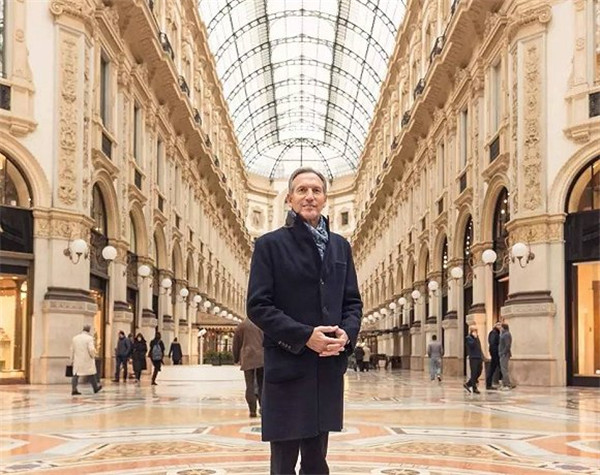
A few days ago, Antonio Percassi, founder of Starbucks' local partner Percassi in Italy, announced that the first Starbucks store in Italy, originally scheduled to open in 2017, would be postponed to 2018. For industry insiders, Starbucks can not enter the Italian veteran, and it has come to mind again.
An assembly line coffee that Italians don't like.
Italians are world-famous for their crazy penchant for coffee, and every cafe in Italy can enjoy a cup of Espresso cooked with fresh coffee beans. There are now more than 149000 cafes in Italy, of which CAFFE PASCUCCI and other brands that are well-known locally have a deep and broad mass base. Although Starbucks, which is good at commercial operation, has also devoted itself to building master stores that pay attention to taste and craftsmanship in recent years, the scale under the commercial demand and chain mode requires Starbucks to embark on the road of standardized scale production. Italians always joke that Starbucks on the assembly line is "shabu-shabu".
Take CAFFE PASCUCCI as an example, a luxury coffee brand unknown to most Chinese (very popular in the upper middle class in Europe), founded in 1883, spanning more than a century, is known as the ingenious aristocracy of the coffee industry. In Italy, Starbucks is really distressed in the face of inaccessible markets, unconquerable customers and unbeatable predecessors.
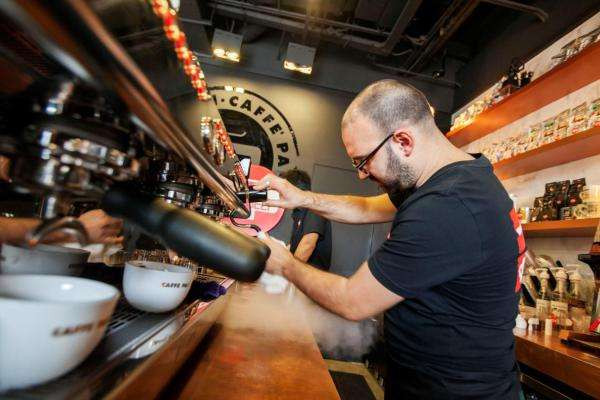
Why does Italian coffee dominate the world?
In contrast to Starbucks' foray into Italy, Italian coffee brands are also occupying the world coffee market, including the United States. Compared with American coffee with a weak foundation, the profound cultural heritage and professionalism of Italian coffee make Italian coffee brands have the definition of "luxury".
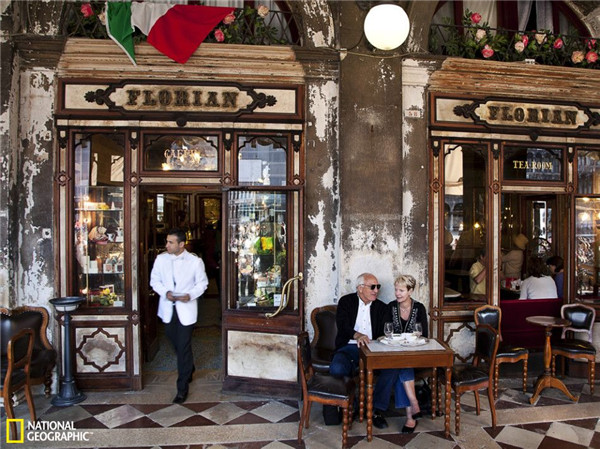
Italian coffee beans sell about 10,000 tons to the world every year, accounting for more than half of the market share. These coffee beans maintain a strict "Italian rule" no matter from the origin or quality control.
While the aloof CAFFE PASCUCCI is more personality, they declined the Shang Chao channel, only selected hotels, restaurants and cafes to provide quality manor beans, while methodically expanding their coffee shop territory. The founding family almost paranoid insists that all coffee beans are roasted by the headquarters of Montecherinio, Italy, to ensure the unity of global quality. This difficult slow baking process makes selected coffee beans unique in flavor, which is also the reason for the rarity of this brand of coffee. According to Italian data, CAFFE PASCUCCI has opened more than 1500 stores in 60 countries on five continents.
Chinese venture capitalists prefer Italian coffee
After a cup of 3W Premier Coffee became popular in 2015, the inspiration that coffee shops brought to China's venture capital community began to emerge. Conscientious people began to wonder why the prime minister drank coffee.
In fact, the influence of early mature coffee brands represented by Chinese mainland on the Starbucks market has begun to bear fruit. An interesting phenomenon has occurred. Chinese coffee lovers began to have an awakening aesthetic improvement of coffee quality. Pipelined coffee can no longer satisfy them. The Chinese market has ushered in a real era of upgrading coffee consumption. 2017 will also become the first year for Italian coffee brands in China.
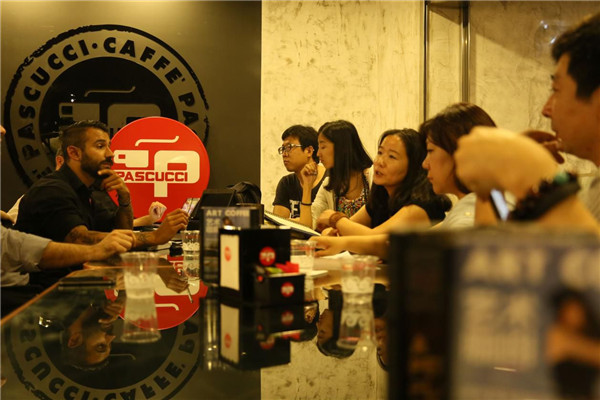
The operation of CAFFE PASCUCCI coffee shops in cities such as Beijing, Shanghai and Guangzhou is just proof of this phenomenon. These stores, which are favored by the middle class, bring together more and more loyal customers who pursue the quality and craftsmanship of pure Italian coffee. In order to ensure the satisfaction of Chinese customers, CAFFE PASCUCCI's chief barista also frequently travels between Hong Kong and mainland stores, personally providing strict Italian training for employees. Handmade coffee, Italian flower, single bean tasting. Italian coffee adheres to the cultural spirit of being a "luxury" and goes deep into the vast Chinese mainland market. Some people say that the confrontation between Italian coffee and American-style commercial Starbucks in China is a reduced dimension blow, but it seems that Starbucks is more eager to win the overseas Italian domestic market (frustrated again). Italian coffee brands are leisurely based on the global expansion.
In terms of this year's situation, in sharp contrast to Starbucks' setbacks in Italy, the 134-year-old Italian coffee brand CAFFE PASCUCCI has quietly completed its strategic layout in the Chinese market, and venture capitalists have shown sufficient confidence in further developing the Chinese market.
Important Notice :
前街咖啡 FrontStreet Coffee has moved to new addredd:
FrontStreet Coffee Address: 315,Donghua East Road,GuangZhou
Tel:020 38364473
- Prev

Wake up the old books around you and you can exchange two books for a cup of coffee.
Changchun Evening News reporter Liang Chuang rummaged through the bookcase and found some old books to share with you so that he could drink delicious coffee. A few days ago, the Changchun Library launched the activity of changing books for coffee, which attracted the attention of countless readers. Readers only need to take two old books and exchange them for a cup of coffee. The event ends on the 7th. In the coffee shop of Changchun Library, the reporter found that he went to
- Next
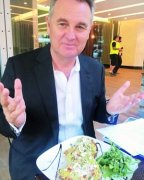
Can the post-80s and post-90s buy a house by going to a cafe less?
Australian social demographer Salter said recently that Gen Y could afford to buy a house if they ate less expensive avocado bread in cafes. In Australia, Generation Y (also known as millennials, equivalent to post-80s and post-90s) is often labeled as indulgent in Australia, the Information Times reported. Australian social demographer Bernard Salter recently announced
Related
- What grade does Jamaica Blue Mountain No. 1 coffee belong to and how to drink it better? What is the highest grade of Blue Mountain coffee for coffee aristocrats?
- What are the flavor characteristics of the world-famous coffee Blue Mountain No. 1 Golden Mantelin? What are the characteristics of deep-roasted bitter coffee?
- Can I make coffee a second time in an Italian hand-brewed mocha pot? Why can't coffee be brewed several times like tea leaves?
- Hand-brewed coffee flows with a knife and a tornado. How to brew it? What is the proportion of grinding water and water temperature divided into?
- What is the difference between Indonesian Sumatra Mantinin coffee and gold Mantinin? How to distinguish between real and fake golden Mantelin coffee?
- What does bypass mean in coffee? Why can hand-brewed coffee and water make it better?
- Unexpected! Ruixing Telunsu lattes use a smoothie machine to foam milk?!
- % Arabia's first store in Henan opens into the village?! Netizen: Thought it was P's
- Does an authentic standard mocha coffee recipe use chocolate sauce or powder? Mocha Latte/Dirty Coffee/Salty Mocha Coffee Recipe Share!
- What is the difference between Vietnam egg coffee and Norway egg coffee? Hand-brewed single product coffee filter paper filter cloth filter flat solution!

